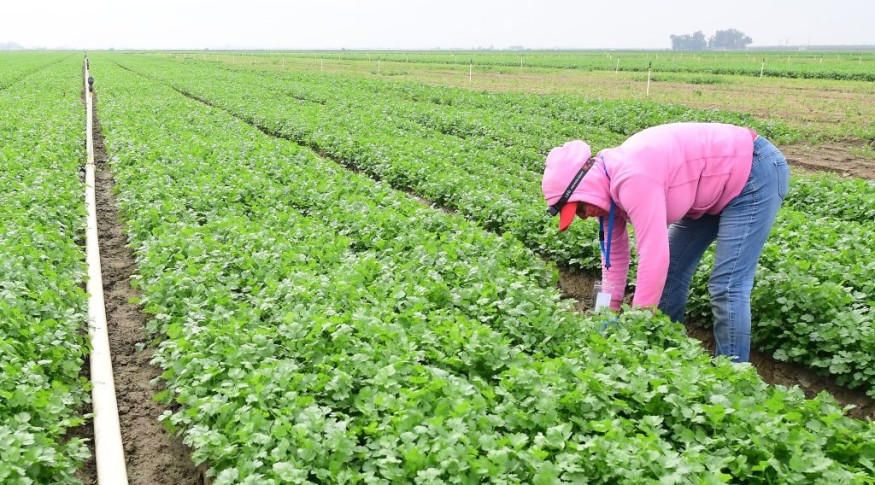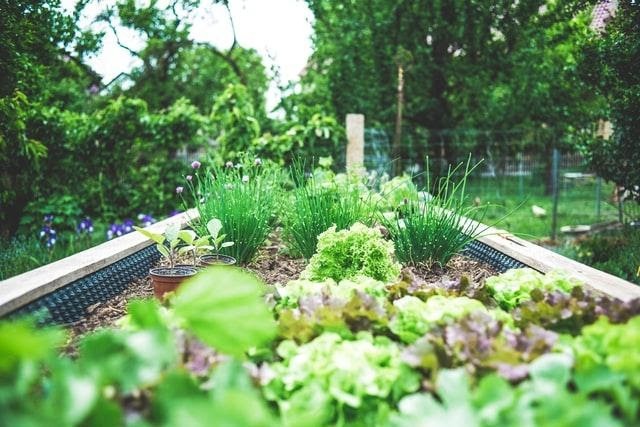A research-industry partnership has resulted in a novel strategy for managing various harmful crop diseases using beneficial soil microbes.
The agri-tech breakthrough aims to provide farmers with a means to lower the expense and environmental harm caused by conventional crop disease management chemical treatments.
Studying Pseudomonas Bacteria

Hundreds of Pseudomonas bacteria strains were isolated and examined from the soil of a commercial potato farm. The John Innes Centre team sequenced the genomes of 69 of them.
The researchers uncovered a fundamental mechanism in some of the strains that protected the potato crop from hazardous disease-causing bacteria by comparing the genomes of those that suppressed pathogen activity with those that did not.
Related Article : Food Prices May Rise as Fertilizer Shortage Worsens in North America
Mixing Various Methods
The researchers then used a mix of chemistry, genetics, and plant infection tests to demonstrate that creating cyclic lipopeptides, a type of tiny molecule, is critical to managing potato scab. This bacterial disease kills a lot of potatoes.
These tiny compounds kill the pathogenic bacteria that cause potato scab, and the protective Pseudomonas bacteria can travel about and colonize the plant roots thanks to them.
According to the results, irrigation also alters the genetically diverse Pseudomonas population in the soil.
"By discovering and confirming processes of potato pathogen suppression, we expect that our work can hasten the development of biological control agents to minimize the need for environmentally hazardous chemical treatments," said Dr. Alba Pacheco-Moreno, the study's first author.
"Because it is based on understanding the mechanisms of action that are critical for biological control agents, the strategy we describe should be relevant to a wide spectrum of plant diseases," she noted.
The study, published in the journal eLife, presents a technique for analyzing the microbiome of nearly any agricultural site, considering soil, agronomic, and environmental factors.
Scanning Soil Microbiome

The approach may scan the soil microbiome for therapeutic bacteria and determine which chemicals are being created to inhibit harmful bacteria by utilizing breakthroughs in high-speed genetic sequencing.
They can also reveal how agronomic factors like soil type and irrigation impact these helpful bugs.
As a soil microbiome boosting therapy, the new technique will return the beneficial bugs to the same area in higher numbers or cocktails of mixed strains.
"The massive advantage of this approach is that we are using bacterial strains that are taken from the environment and put back in the same specific biological context in larger numbers, so there is no ecological damage," says Dr. Jacob Malone, Group Leader at the John Innes Centre and co-corresponding author of the study.
Microbiome boosters can be applied in various ways, such as seed coatings, sprays, and drip irrigation, among others.
"In the future, we would use the Pseudomonas strain itself, rather than the molecule produced by the bacteria," says Dr. Andrew Truman, Group Leader at the John Innes Centre and corresponding author of the study. "It offers a more sustainable route - we know these bacteria colonize the soil where potatoes grow, and they protect the crop. Using a bacterium, you can easily grow and formulate it in an aqueous solution."
Plant Infections
Plant infections are a serious agricultural issue that causes significant crop losses, such as potatoes, in the United States. Streptomyces scabies, a bacterial pathogen that produces potato scab, and Phytophthora infestans, an oomycete disease that causes potato blight, a significant cause of the Great Famine in Ireland, are two critical potato infections.
As natural compounds that stimulate plant development and prevent infections, Pseudomonas bacteria are regularly linked with plants and have been extensively investigated as biological control agents. In the past, however, their usage has been limited by inconsistency.
Pseudomonas has been shown to have a biocontrol effect inhibiting potato scabs in previous research. A lack of mechanical understanding, on the other hand, hampered advancement. Irrigation is also well-known for its ability to prevent Streptomyces scabies infection, and this study now implies that this is due to the action of water on microbial populations.
For more Agricultural News, don't forget to follow Nature World News!
© 2026 NatureWorldNews.com All rights reserved. Do not reproduce without permission.





